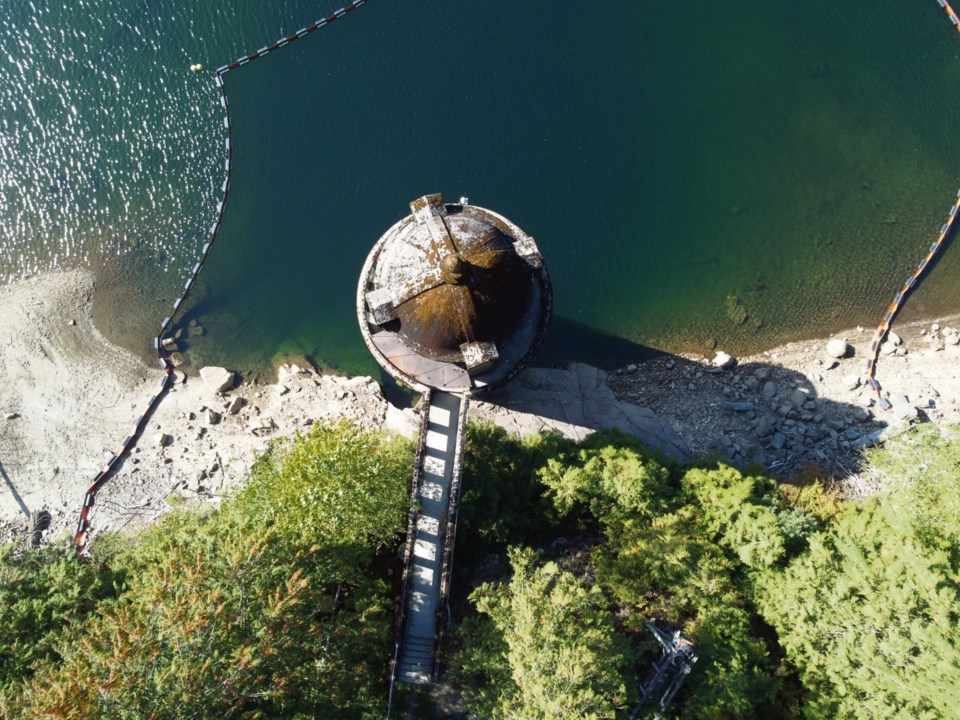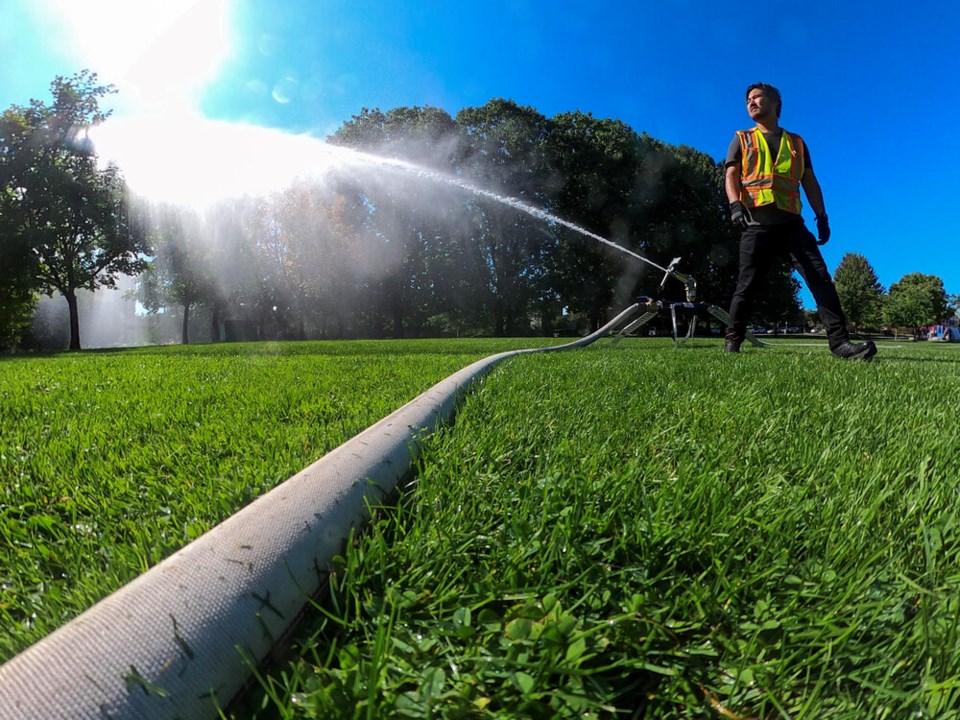Metro Vancouver is reminding residents seasonal watering regulations will be rolled out May 1. The Stage 1 restrictions will limit homes and businesses to lawn watering once a week, all part of an effort to save drinking water during the region’s hottest and driest months.
Under the restrictions, which extend until Oct. 15, property address and type determine when people are permitted to water their lawns, trees, shrubs and flowers with a sprinkler. Hand watering is permitted at any time and edible plants are exempt from the restrictions.
“We are increasingly seeing variable weather patterns due to climate change, and we can’t always count on rainfall to replenish our water supply when we need it,” said George Harvie, chair of Metro Vancouver's board of directors, in a written statement.
“Last year’s dry fall resulted in an extension to lawn watering regulations and reinforced that good conservation habits by all residents and businesses are an important part of how we will continue to meet our region’s drinking water needs.”
Metro Vancouver has released the following guide for Stage 1 restrictions:
Stage 1 residential lawn watering allowed
- Even-numbered addresses: Saturdays — automatic watering between 5 a.m. and 7 a.m., and manual watering between 6 a.m. and 9 a.m.
- Odd-numbered addresses: Sundays — automatic watering between 5 a.m. and 7 a.m., and manual watering between 6 a.m. and 9 a.m.
- Trees, shrubs, and flowers can be watered with a sprinkler any day between 5 a.m. and 9 a.m., or any time by hand or using drip irrigation.
Stage 1 non-residential lawn watering allowed
- Even-numbered addresses: Mondays — automatic watering between 4 a.m. and 6 a.m., and manual watering between 6 a.m. and 9 a.m.
- Odd-numbered addresses: Tuesdays — automatic watering between 4 a.m. and 6 a.m., and manual watering between 6 a.m. and 9 a.m.
- Trees, shrubs, and flowers can be watered with a sprinkler any day between 4 a.m. and 9 a.m., or any time by hand or using drip irrigation.
The restrictions do not apply to recycled water, either from grey water or collected rain water. Any resident found in breach of the regulations are subject to fines under their city’s local bylaws.
Should dry, hot conditions persist, Metro Vancouver warns it could initiate Stage 2 restrictions, which ban lawn watering.
Mounting risk of drought, growing population intensify need to conserve water
Last year, B.C.’s South Coast and Vancouver Island faced “uncharted” drought conditions, in some areas lasting into December.
Metro Vancouver’s drinking water system managed to fare somewhat better, largely due to the redundancies the regional body has across its three mountain-fed reservoirs.
The Coquitlam, Seymour and Capilano reservoirs supply water to Metro’s 21 municipalities, Electoral Area A, and the Tsawwassen First Nation. Through a network of large pipes and staging facilities, the three watersheds feed local water systems across the Lower Mainland.
The regional body has earmarked billions of dollars of capital spending to upgrade that system in recent years — including building pipes under the Burrard Inlet and Fraser River, among other places.
But the regional water system also faces a number of serious threats.
The effects of climate change and a growing population are expected to put growing pressure on the Metro water system over the coming decades.
Roughly a million more people are expected to arrive in the region by 2050, when 3.8 million people will open their taps in the morning to brush their teeth.
By 2036, Metro Vancouver predicts a growing population means the current water supply won’t be enough to ward off Stage 3 and even Stage 4 emergency water restrictions — limiting water use to essential needs — during the hottest summer months.

Metro’s climate projections suggest a modest increase in rainfall by mid-century. But nearly all of that rain is expected to fall during extreme weather events during the wet months. Dwindling summer rain will increasingly lead to extended drought, according to modelling.
Metro has a plan, but it’s incredibly expensive and not a permanent solution. Thirty years from now, a nearly $2.8-billion infrastructure project is slated to boost the water extracted from the Coquitlam reservoir, so that, by 2040, at least 60 per cent of the Metro region will be drinking the lake’s water.
How water-stressed Metro Vancouverites will be in the interim will largely depend on how much they can curb their wasteful habits.
In the last decade, water consumption across the region has dipped even as the population climbs. Education campaigns to get people to limit washing their car or watering their gardens are working. But there will be a limit, according to modelling from Metro Vancouver.
About 15 years from now, Metro staff say water consumption will outpace the arrival and birth of new residents.

In 2021, Glacier Media spoke to Deborah Curran, head of the University of Victoria Environmental Law Centre, as part of an investigation into the future of Metro Vancouver’s water. At one point, she said, the region will need to start considering alternative payment models like water metering.
And everyone across Metro Vancouver will need to get comfortable with the idea that summer green lawns will be a thing of the past if we still want to ensure salmon have enough water downstream of dams, Curran said at the time.
“There’s no right to water our garden, nor is there a right to water our car. It’s really low-hanging fruit,” she said.
Climate change and seasonal weather patterns are not the only threats putting Metro's water system at risk.
A heavily redacted report released by Metro Vancouver last year found a megathrust earthquake could rupture Metro Vancouver's water pipes in 267 places, a significant uptick from past studies.
The Metro Vancouver report cites research suggesting an earthquake of 9 magnitude has a 14 per cent chance of hitting the coast over the next 50 years, although others suggest the probability could be as high as 37 per cent.
The dams holding back Metro Vancouver’s three main reservoirs were not part of the study.



